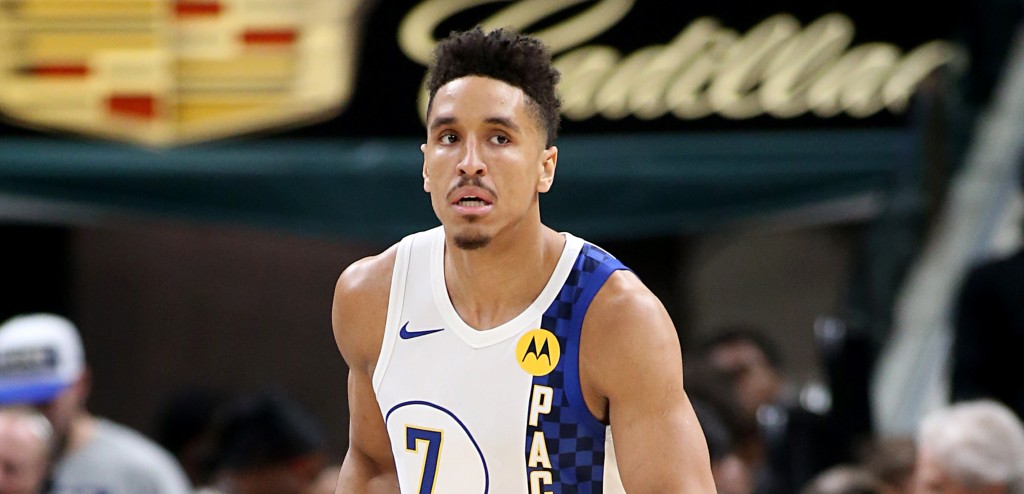
Malcolm Brogdon was among the many NBA players that participated in peaceful protests over the weekend against police brutality and racial injustice following the killing of George Floyd by a Minneapolis police officer. It was the latest instance of an unarmed black person being killed by police, captured on tape, and following the killings of Breonna Taylor in Louisville and Ahmaud Arbery in Georgia in recent weeks, people spilled into the streets around the country to protest police violence.
Brogdon joined a protest organized by Jaylen Brown in their hometown of Atlanta, Georgia over the weekend and both spoke forcefully and eloquently to the gathered crowd about why they were there and what needed to change. On Monday, Brogdon joined Rachel Nichols on The Jump to further elaborate on the message he hoped to get to the masses, and why it was important to keep the focus on the issue at hand — police brutality towards the black community — rather than let it be shifted to rioting and looting.
“I want people to hear that this is something that has been going on for over 400 years for people of color. We are at a stage now where people are desperate, people are losing hope and people of color, black and brown people, we’re at our wits end, and at this point we need help. At this point we need other people, people of different races, to step up with us, to step in front of us and beside us and support us. Speak up, because I think so much of the focus is being put on the violence that’s going on and the looting, and in no way do I condone the violence but at the same time I don’t think that should be our focus. Our focus should be on the oppressors, not the oppressed. So there are ways, we need to vote. We have to get out and vote, on the local level, on the state level, on the federal level, we have to get out and vote as a whole. But also those that are, specifically white people, have to help. We have to find people in high enough positions that have notoriety that can speak up for us and help. So there are multiple conversations going on, but at some point action has to be put to the test and there’s only so much African-Americans can do. There’s only so much weight our voices do hold, and that’s why it’s so important for people of other races to step in and use the weight of their voice to impact change.”
Brogdon’s statement on keeping the focus on the oppressors, not the oppressed and how they are protesting injustice is reminiscent of Colin Kaepernick, who regularly had to remind people why he was kneeling in protest of the same issues of police brutality, while discussion devolved into arguments over the method of his protest. Connecting those two offers a reminder that there is no method of protest that those in power that are being protested will be accepting of, and when they insist there’s a proper way to go about this they’re simply moving goalposts that can never be reached.
Protests are meant to be uncomfortable, because without putting the issue directly in our faces, those of us in the majority who don’t face racial injustice daily can easily compartmentalize it and believe it’s not a significant and dire issue. It must be, in some way, confrontational, whether that’s masses in the streets or athletes refusing to let sports be the “distraction” and bringing the message to the field or court. It’s us that Brogdon is speaking to, those that aren’t faced with it every day, as we are the ones that can elevate the problem and help to actually affect change by showing empathy to people that face very different challenges than us and believing them when they tell us this is happening.
